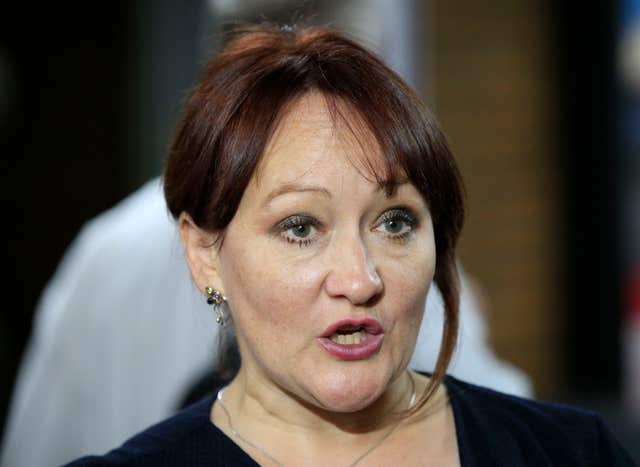
Unpaid carers are having to wait longer to hear whether they will be given financial support by the Government, data suggests.
Department for Work and Pensions (DWP) figures also show that greater numbers of people have applied for carer’s allowance over the last two years.
People who spend more than 35 hours each week looking after someone with a disability or illness can make a claim for the £69.70-a-week payment.
A freedom of information request by the PA news agency revealed 30,688 carers were awaiting a decision in mid-June, when the average clearance time for a claim was 31 working days.
This compared with 17,453 people awaiting a decision in early November 2020 when the average clearance time was 20 working days.
Shadow work and pensions secretary Jon Ashworth said: “Long waiting times for essential benefits like carer’s allowance are unacceptable in a cost-of-living crisis. This is another example of ‘backlog Britain’ presided over by the Conservatives.
“The Department for Work and Pensions needs to get a grip and ensure people who need it get the support they are entitled to, without delay.”
Liberal Democrat leader Sir Ed Davey, himself a carer for his son, said: “When people take on caring responsibilities, they should get the support they are entitled to without delay. It is completely unacceptable that the Government is forcing tens of thousands of carers to wait weeks to get carer’s allowance.
“This is yet another example of how carers are too often an afterthought for Government ministers. That has to change.”
Charity leaders warned that unpaid carers are “increasingly being plunged into poverty” as the allowance is not enough to cover all their costs, and called on ministers to make processing claims a priority.
The DWP provided the total number of carer’s allowance claimants awaiting a decision for each month from May 2020 to June 2022, and the average clearance time for claim in working days for each month from November 2020 to June 2022.
The figures suggest there has been a growing backlog, with the number of people waiting for a decision standing at 15,411 on May 25 2020, rising to 30,688 on June 13 this year.
The average processing time was 20 working days on November 2 2020 – when such data was first available – and 31 working days on June 13 this year.
Waiting times peaked earlier this year, with an average clearance time of 47 working days on February 14, with 43,933 claimants awaiting a decision.
The DWP says processing times have since decreased because it has taken on new staff to meet the demand, which it claimed is “9% over the forecasted amount of claims for carer’s allowance expected” since April 2022.
Joe Levenson, Carers Trust executive director of policy and external affairs, said unpaid carers “contribute an enormous amount to society but are increasingly being plunged into poverty and financial hardship due to a lack of financial support, barriers faced in juggling caring roles with employment and the growing cost-of-living crisis”.
He added: “Delays processing applications for carer’s allowance represent yet another blow for unpaid carers, especially as those affected are likely to be new carers who will be in particular need of support.”

Kerry McCarthy, Labour MP for Bristol East, recently raised waiting times for carer’s allowance with the Government on behalf of a constituent, and said the data showed hers “wasn’t an isolated case”.
She added: “We need to know why the number of unprocessed claims – and waiting times – has rocketed in the past two years.”
A DWP spokesperson said: “We recognise the valuable and vital contribution made by carers every day to support family and friends.
“We are committed to ensuring carers receive the financial support they need and deserve as quickly as possible, which is why we are taking on new staff to reduce processing times for carer’s allowance.”
The DWP encourages carers in low-income households who are not in receipt of financial support from the Government to apply for mean-tested benefits.
It also estimates that 60% of working age people on carer’s allowance will get the £650 cost-of-living payment the Chancellor has announced to help struggling households.


Comments: Our rules
We want our comments to be a lively and valuable part of our community - a place where readers can debate and engage with the most important local issues. The ability to comment on our stories is a privilege, not a right, however, and that privilege may be withdrawn if it is abused or misused.
Please report any comments that break our rules.
Read the rules here